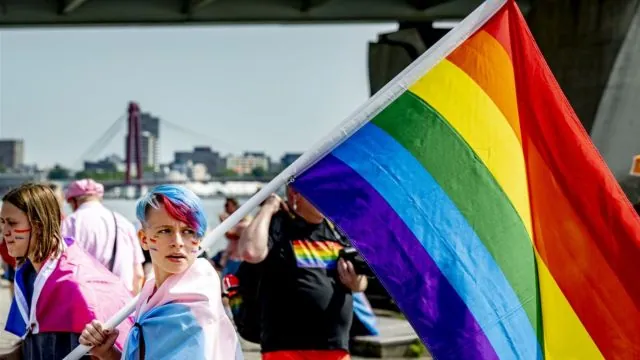Ohio, a Midwestern state boasting a population of approximately 11.8 million people and a diverse economy encompassing manufacturing, finance, agriculture, and education, is home to renowned attractions like the Rock and Roll Hall of Fame, the Pro Football Hall of Fame, and Cedar Point amusement park. This article delves into the LGBTQ rights and acceptance landscape in Ohio, exploring whether the state provides a favorable environment for LGBTQ individuals to live, work, and visit.
Legal Status of LGBTQ Individuals in Ohio
When assessing a state’s LGBTQ-friendliness, it is crucial to examine the legal status concerning civil rights and protections for LGBTQ individuals. Ohio’s record on this front is mixed, with recent progress accompanied by existing gaps and limitations.
Marriage and Family
In 2004, Ohio was among the states that constitutionally banned same-sex marriage, a restriction overturned by the U.S. Supreme Court’s 2015 landmark ruling in Obergefell v. Hodges. Since then, same-sex couples in Ohio have enjoyed the same rights and responsibilities as their opposite-sex counterparts. Notably, the state lacks a statewide law permitting LGBTQ individuals to change their gender marker on birth certificates, presenting challenges for transgender and non-binary individuals. A December 2020 federal ruling deemed Ohio’s policy unconstitutional, but the state has appealed, and the case remains pending as of January 2024.
Discrimination and Harassment
LGBTQ rights in Ohio also hinge on protection from discrimination and harassment based on sexual orientation and gender identity. The absence of a statewide law prohibits such discrimination in employment, housing, public accommodations, education, or health care, leaving LGBTQ individuals vulnerable. However, a 2020 U.S. Supreme Court ruling in Bostock v. Clayton County extends federal civil rights laws to cover sexual orientation and gender identity discrimination in the workplace, offering some protection to LGBTQ workers in Ohio. This ruling, however, does not extend to other areas, such as housing or public services, and allows employers to use religious exemptions to justify discrimination.
Hate Crimes and Violence
Protection from hate crimes and violence is another facet of LGBTQ rights. Ohio has a hate crime law enhancing penalties for crimes based on race, color, religion, or national origin, but it does not include sexual orientation or gender identity as protected categories. Furthermore, Ohio lacks a law banning conversion therapy, a discredited practice with serious psychological ramifications. While some cities in Ohio have local ordinances prohibiting licensed mental health professionals from performing conversion therapy on minors, there is no statewide ban.
Social Attitudes and LGBTQ Culture in Ohio
Beyond legal considerations, evaluating a state’s LGBTQ-friendliness involves examining social attitudes and the LGBTQ community’s culture.
LGBTQ Organizations and Resources
Ohio boasts a diverse and vibrant LGBTQ community, supported by numerous organizations and resources. Statewide entities like Equality Ohio, TransOhio, and Kaleidoscope Youth Center, along with local organizations in cities such as Cincinnati, Columbus, Dayton, and Toledo, provide advocacy, education, and support services.
LGBTQ Events and Celebrations
Ohio hosts various LGBTQ events and celebrations, including the Columbus Pride Festival and Parade, Cincinnati Pride Festival and Parade, Cleveland Pride Festival and Parade, Dayton Pride Festival and Parade, and Akron Pride Festival and Parade. These events showcase the diversity and pride of the LGBTQ community.
Challenges and Opposition
While Ohio features positive aspects of LGBTQ life, challenges persist. Conservative and religious influences contribute to a hostile environment. In 2020, a bill that could impact access to gender-affirming health care for minors was introduced, reflecting anti-LGBTQ sentiment. Ohio is also home to active hate groups that target LGBTQ individuals, as reported by the Southern Poverty Law Center.
Conclusion
Ohio presents a complex situation regarding LGBTQ rights and acceptance. While progress has been made, including legalizing same-sex marriage and fostering a vibrant LGBTQ community, gaps and limitations persist. The state’s conservative and religious segments contribute to a less-than-friendly environment for LGBTQ individuals. Ohio remains a state with both LGBTQ-friendly and unfriendly aspects, and the experiences of LGBTQ individuals may vary based on their location and self-expression. The ongoing advocacy for change and justice remains crucial for Ohio to evolve and enhance LGBTQ rights and acceptance.

